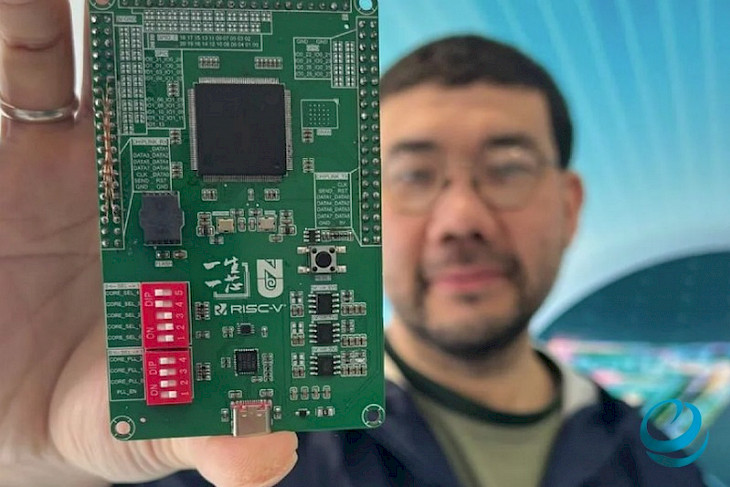Kazakhstan has taken a significant step into the semiconductor industry: researchers at Nazarbayev University (NU) have developed the country's first microprocessor, Profit.kz reports.
Earlier, Kazakhstan's Prime Minister Olzhas Bektenov emphasized the importance of science in creating high-tech export-oriented enterprises and strengthening the connection between scientific research and production.
As noted by Nursultan Kabylkas, Assistant Professor at NU’s School of Engineering and Digital Sciences, “Chip development is not just an innovation but a ‘paved path’ into the global semiconductor industry.”
The creation of the microprocessor at NU has become a practical confirmation of this direction.
The project was implemented through a partnership with the University of the Chinese Academy of Sciences and the Beijing Open Source Institute. The startup TEXER.AI, which received a grant from QazInnovation, played a key role in the development.
Chip fabrication is an expensive process, with costs reaching up to $100,000 for test chips.
Thanks to international collaboration, the Kazakhstani design was integrated into the mass production of partners, allowing the microchip to be manufactured at no cost—an achievement that inspired the development team.
The project team consists of talented young specialists, mainly students and graduates of NU, working in university laboratories. Research conditions were made possible with the support of the NU Endowment Fund and Nazarbayev Intellectual Schools.
The developed processor can be used in automated devices such as programmable logic controllers (PLCs), where reliability and operational predictability are crucial.
In the future, the team and startup TEXER.AI plan to focus on creating EDA tools (Electronic Design Automation)—software solutions for automated design and verification of electronic devices and microchips.
The first chip labeled “Designed in Kazakhstan” serves as the foundation for forming a technological ecosystem and integrating into the global semiconductor industry, opening new opportunities for scientific research, education, and innovative growth.
The development of the semiconductor sector could help reduce dependence on imports and strengthen the country's economic security.
Global experience shows that state support plays a key role in the development of high-tech economic sectors.
The global semiconductor industry plays a critical role in modern high-tech economies. The experience of countries such as the U.S., China, South Korea, and Taiwan demonstrates that a comprehensive industrial policy in the semiconductor sector can transform a country's economic future.
Studying their approaches helps identify key strategies that Kazakhstan can adapt to strengthen its economy and support high-tech sectors.
CentralasianLIGHT.org
March 18, 2025

